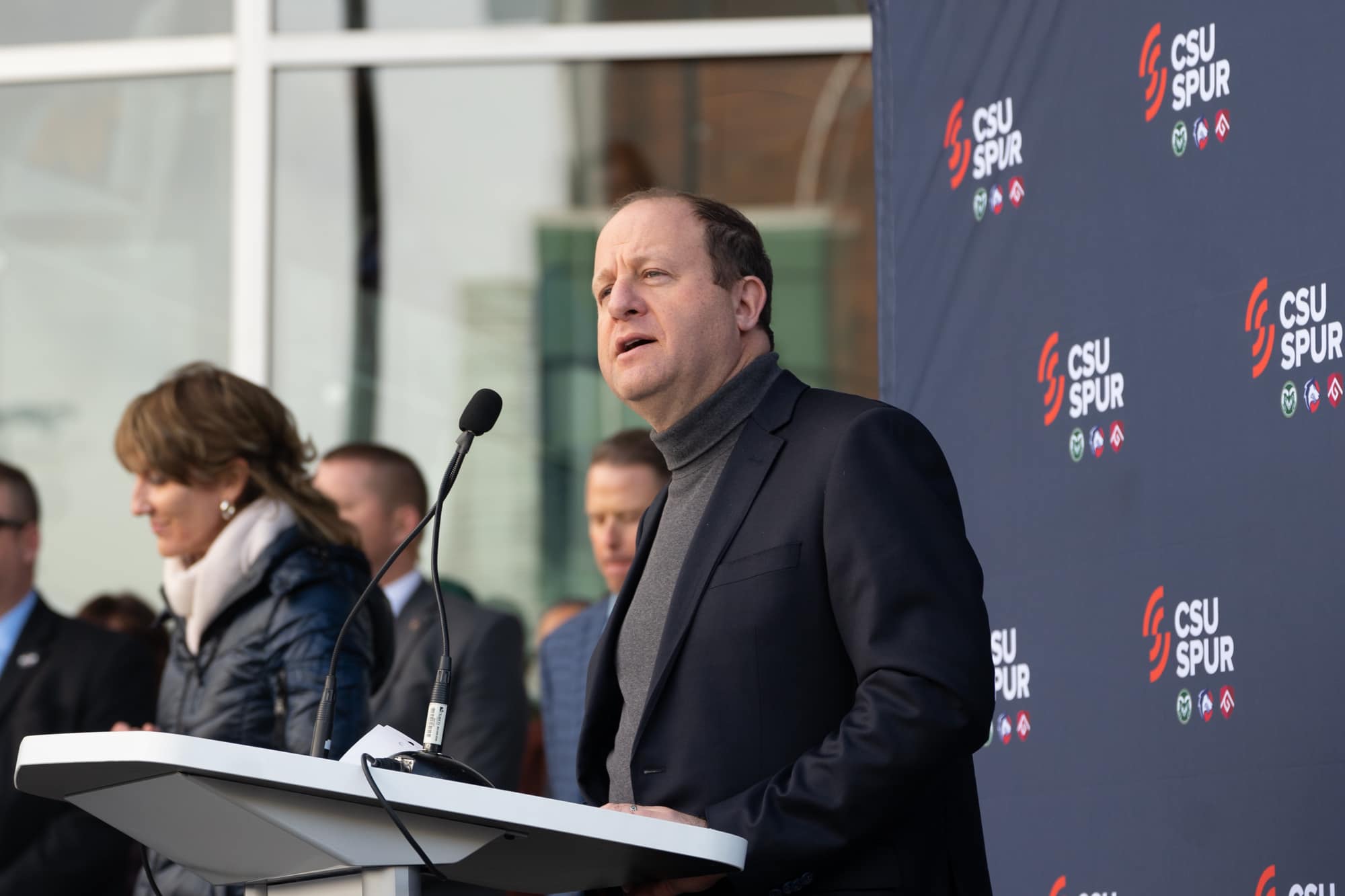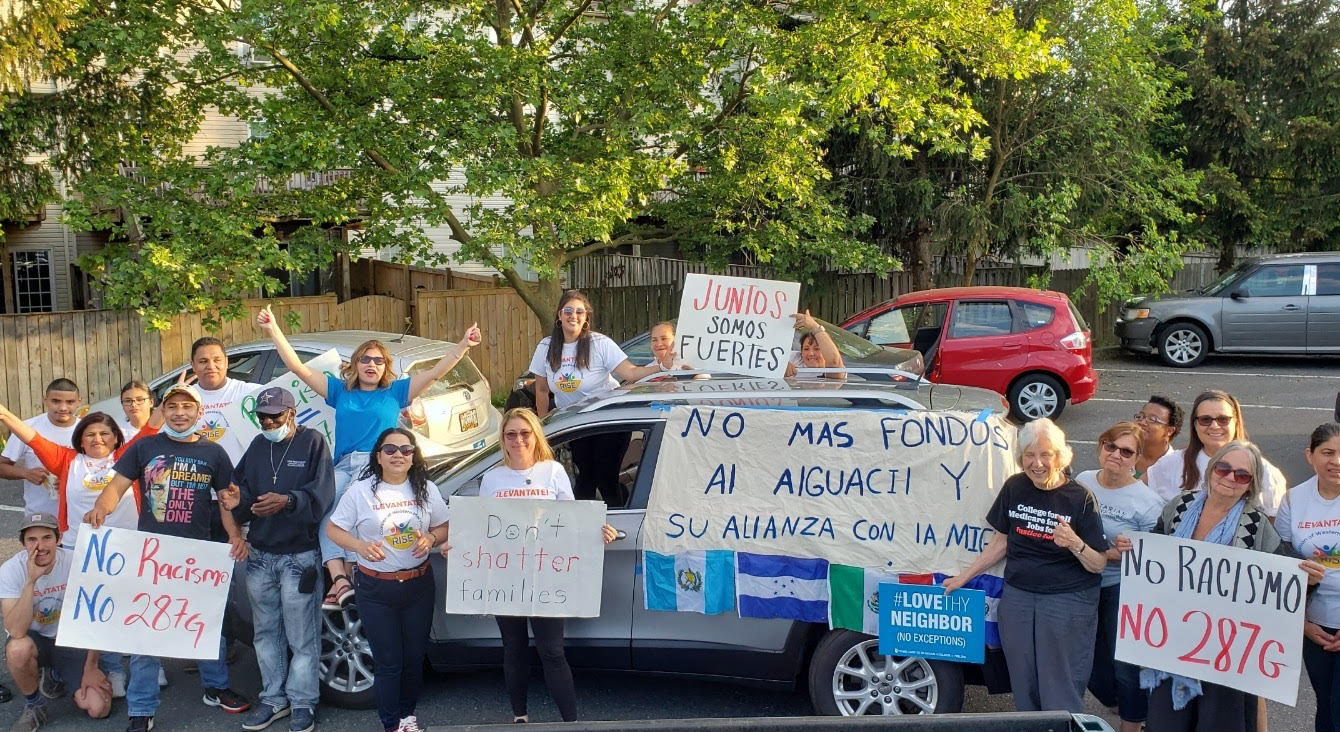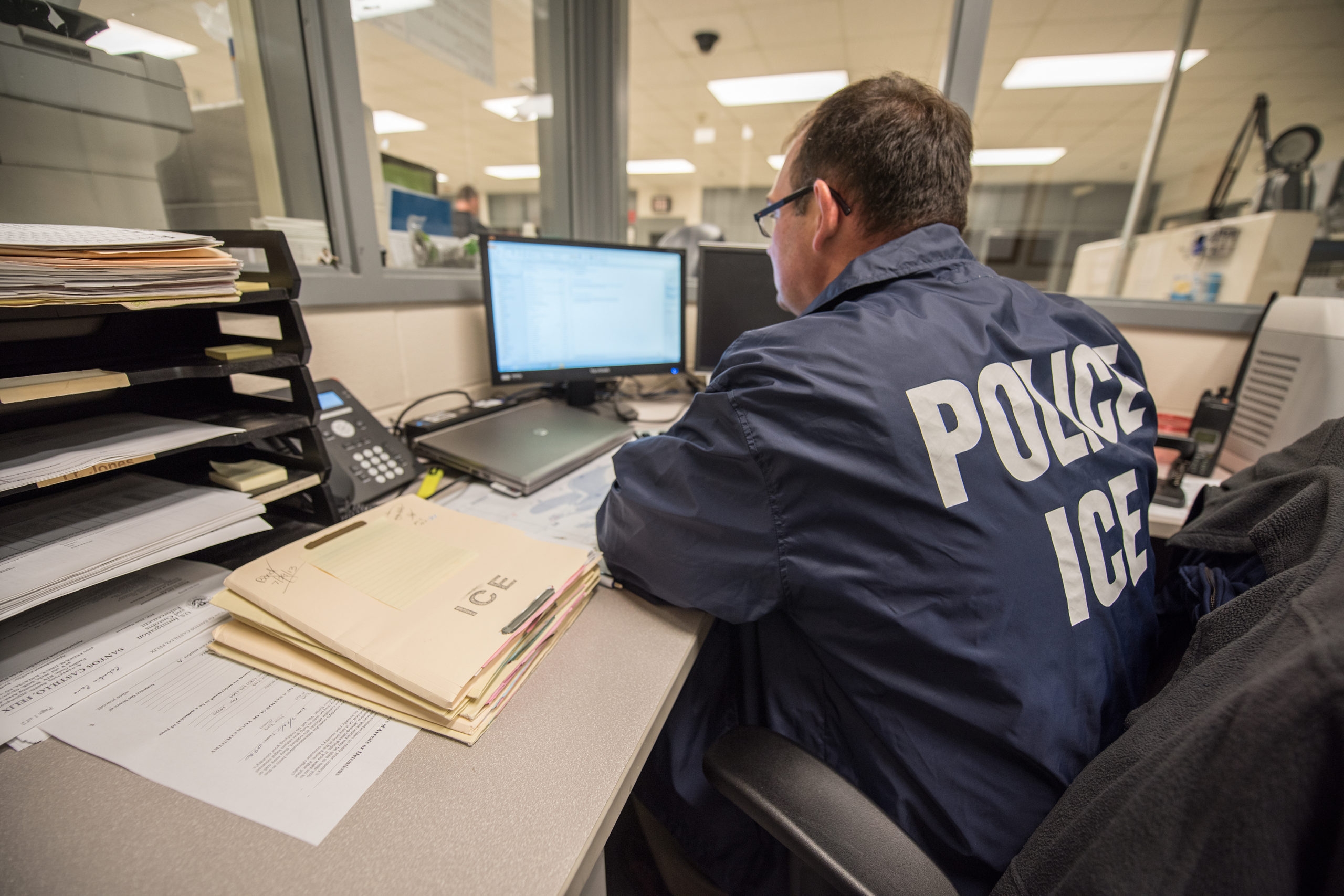Colorado Bans Local Governments From Jailing Immigrants for ICE
A bill the governor signed into law this week will end local contracts to jail people for federal immigration authorities and change the landscape of ICE enforcement in the state.
Alex Burness | June 8, 2023


Colorado this week became just the seventh U.S. state to prohibit local government agreements to detain immigrants in their jails on behalf of federal immigration authorities.
House Bill 1100, which Democratic Governor Jared Polis signed Tuesday, directs local governments to “eliminate involvement in immigration detention.” It will ensure the end of detention agreements with U.S. Immigration and Customs Enforcement (ICE) in Teller and Moffat counties, the last two places in the state with contracts where ICE pays to warehouse arrestees in local jails. The law calls for these agreements to terminate by next year, and also bans state and local governments from participating in any scheme to detain immigrants with a private prison company.
Experts expect the move to force federal immigration officials to rethink overall enforcement strategy in the state, and ultimately to reduce civil immigration detention there.
“It’s definitely a huge win,” said the Colorado Immigrant Rights Coalition’s Nayda Benitez, who is undocumented but shielded from deportation by the federal Deferred Action for Childhood Arrivals (DACA) program. “This fight, ensuring that there is limited collaboration between ICE and local law enforcement agencies, is one we’ve fought for years, and this is another step forward.”
It’s estimated more than 150,000 people, or about 3 percent of Colorado residents, are living in the state without authorization. Advocates and lawyers trying to shield that population from incarceration and deportation have recently charted a series of victories: since 2019, when Democrats took control of state government, Colorado has, among other changes, banned local law enforcement from arresting or jailing someone on the basis of a civil immigration detainer; banned ICE from arresting people on courthouse grounds; allowed non-citizens to obtain driver’s licenses; and opened state housing benefits to all residents, regardless of immigration status.
Backers of this latest law, HB 1100, say it is particularly important for people in and around Teller County who live in fear of contacting law enforcement when they are victims of or witnesses to a crime because of immigration status. Teller County reports close to 600 immigrants have been detained there since 2019; the vast majority of those detentions came during the Trump administration, when ICE more aggressively pursued civil immigration violations.
Benitez told Bolts that Teller County, which sits just west of Colorado Springs, has long been viewed as a hostile place for immigrants, and that she hopes HB 1100 offers that community a greater sense of security.
“People that are traveling there, that are in the area, know that you just have to be careful because that county does work with ICE,” Benitez said. “It’s an extra level of precaution; there’s ICE presence throughout the state, but not all counties have contracts with ICE or a motivation to possibly detain people. … If I’m with my family in Teller County, we drive as carefully as we can. I don’t really stay that long when I’m there.”
Though Moffat County, in far northwest Colorado, also maintains a detention contract with ICE, immigrant rights advocates say enforcement is not nearly as aggressive in that area and that HB 1100 more specifically targeted Teller County.
Representative Lorena Garcia, a Democrat and lead sponsor of the law, told Bolts, “My understanding, from when we spoke with the Moffat County sheriff, is that their contract is worth maybe $10,000 to $12,000 a year. If they are using it, it’s a very limited amount.” (The sheriff’s office did not return Bolts’ request for comment, and ICE’s own year-end detention statistics don’t mention Moffat County.)
Garcia and others who worked to pass the law hope that, beyond limiting local involvement in immigration detention, it will also make people feel safer reporting crimes.
“I was a victim of domestic violence. I was silent for years because I did not have the courage to ask the police for help, for fear they will work with ICE and detain me,” Milagro Chavez, an unauthorized immigrant in Colorado, told state lawmakers during a legislative hearing earlier this year, through a translator.
While people in immigration detention are accused of civil violations, they are often treated as criminals in local lockups, several families told Bolts.
Christina Zaldivar, whose husband, Jorge, has spent many years entangled with immigration enforcement, said he was arrested by ICE after a car crash. Though no one was hurt and Jorge was accused of no crime, he was eventually placed in Teller County’s jail, an hour from home, and made to wear a jumpsuit and live in a cell for three months. “Teller County has no business collaborating with ICE, and shouldn’t be receiving dollars for this,” Zaldivar said. “Shame on Teller County. Shame on Moffat County. How dare they?”
Ending agreements with ICE in Moffat and Teller Counties presents a strategic concern for federal immigration authorities. The contracts there gave ICE more options for detaining people across wider swaths of this largely rural and mountainous state, but the end of ICE agreements in those counties will leave just one immigration detention center in the state: a 1,500-capacity facility in Aurora just outside Denver, operated by the private-prison giant GEO Group.
ICE’s former longtime director of enforcement and removal operations in Colorado and Wyoming, John Fabbricatore, predicted the law would lead to less immigration enforcement in the state. He recently told a state House committee that ICE would have to be more selective with fewer places to detain immigrants.
“We have pretty bad winters out here,” Fabbricatore, a 24-year ICE veteran who retired last year, told lawmakers during his testimony. “If you arrest somebody down in Durango with ICE, you would have to drive them from Durango all the way up to the GEO facility in Aurora during that ice storm, or go over mountain passes, or wherever, when now you could deliver them first to Teller County, hold them in Teller County.”
Colorado’s reform follows similar legislation in California, Illinois, Maryland, New Jersey, Oregon, and Washington. New Mexico also considered banning local arrangements with ICE this year, but the proposal died in the state Senate in March. Mark Fleming, an associate director at the National Immigrant Justice Center and an advocate for HB 1100, said other states that have banned local ICE detention agreements have seen drops in overall enforcement.
“In states like Illinois, where I am, what we have noticed is that the number of people swept up into the pipeline for deportation goes drastically down,” Fleming told Bolts. “By passing this sort of legislation, we have forced ICE to prioritize its enforcement and it’s led to a drastic reduction of enforcement in the state. I’d suspect very similar patterns in Colorado.”
Up until the moment Polis signed the bill into law Tuesday night, advocates had feared that he would veto it. He was under pressure from Teller County officials to do so, and there is some precedent for Polis opposing legislative attempts to curtail ICE power.
Polis, who founded schools for undocumented and immigrant children and strongly supported the DACA program while a member of Congress, as governor surprised and frustrated immigrant rights advocates in 2019 when, early in his first term, he forced lawmakers to cut legislation seeking to create “safe spaces” in places like churches and hospitals, where ICE could not make arrests.
Even as he signed HB 1100, Polis also issued an accompanying letter endorsing ICE as an agency with a “legitimate and important role in our state and in our nation,” and reiterating that “Colorado is not, nor should it be, a sanctuary state.”
Representative Garcia, the bill sponsor, said that the governor’s concerns with the bill sometimes veered from policy and into rhetoric. “One of the things he asked us is, ‘How is this going to not make me go against my promise to not make Colorado a sanctuary state?’” Garcia told Bolts.
Aurora City Councilmember Crystal Murillo, who represented the Colorado People’s Alliance in advocating for HB 1100, said “sanctuary,” in this context, is so undefined that it’s hard for advocates to know which policy proposals will or won’t cross the governor’s line. “I’m not sure what this means for his leadership in the immigration justice space,” Murillo said. “I know some of our coalition partners were happy to see that the bill was passed, but I guess concerned by what that signaling means for future immigration justice work in the state.”
In his letter accompanying the bill signing, Polis seemed to signal that he would oppose any future legislation to ban local governments from entering into 287(g) agreements, which are similar to the local detention agreements banned by the law he just signed. Unlike those agreements, the 287(g) program deputizes local law enforcement to act with ICE and on its behalf, including by making arrests. In Colorado, only Teller County has such a contract, and it’s been a matter of legal dispute for years between the ACLU and the county.
“All local governments should be free to determine how and when they work with federal immigration officials when it comes to immigration enforcement, and the state should never get in the way of efforts to enforce state or federal law,” Polis wrote.
Sign up and stay up-to-date
Our weekly newsletter on the local politics of criminal justice and voting rights




